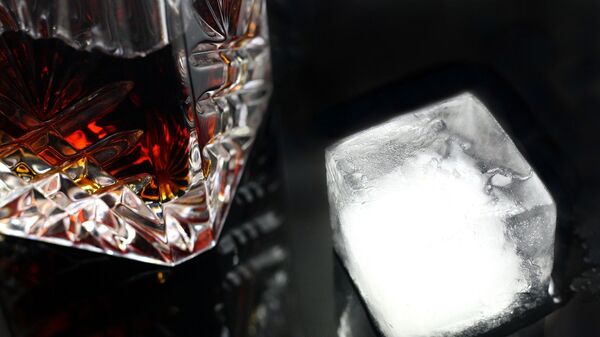Published in the Scientific Reports journal, the study indicates that water moves an aromatic oil called guaiacol, which gives whiskey its smoky taste after aging in wood barrels, to the surface of the drink, making it more pleasant to smell and consume.
A whiskey study may sound fun, but the researchers at Sweden’s Linnæus University didn’t conduct research by imbibing the subject, but rather by running computational models to analyze how guaiacol is distributed in different concentrations of whiskey and water.
They found that molecules that create taste tend to cluster near the air and closest to the taste buds in lower alcohol concentrations, whereas in higher alcohol concentrations the molecules tend to be more spread out.
Bjorn Karlsson, co-author of the study and computational scientist at Linnæus, explained to NPR that "When you increase concentration of ethanol, ethanol will sort of be totally at the interface [between the liquid and the air], fill up the total space at the interface and then start to also be found in the bulk," and "a lot of the taste compounds will then be transferred from the interface into the bulk."
Eddie Russel, master distiller at the Wild Turkey bourbon manufacturer, told Popular Science, "Most of the bourbon makers when I was growing up — Booker Noe, Jimmy Russell, Elmer T. Lee — they would say ‘no, you don't need no water; it's perfect the way it is’ … But I think that was just because the scotch guys always said to drop a few drops of water in it," he said, referring to the difference in whiskey-preparing philosophies.
Though Russel doesn’t add water to his bourbon, he does add two ice cubes, which is basically the same thing, according to researchers. He said, "I think as it melts it does sort of open up some different flavors you wouldn't get right off … whether it's cutting down the alcohol a little bit or just different things combining to bring out some different flavors."
Karlsson warns against diluting whiskey too much, as an overabundance of water could wash all flavor away.
He said, "We have receptors on our tongue, in our nose, that are sensitive and depend upon the concentration of the specific components you want to detect with your nose and tongue … So if it's too diluted there's a risk that you actually don't detect it with your nose or your tongue."




